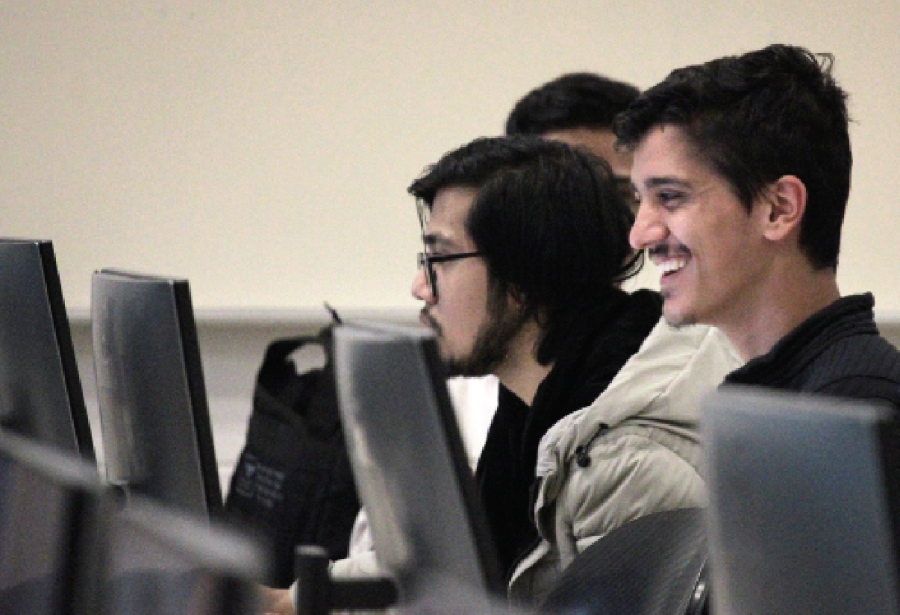Programming competition tests critical thinking
With the timer set for three hours, students began working on a set of six computer programming problems. Whomever worked the fastest would win the annual programming competition.
The objective was to finish as many problems as possible, as fast as possible.
While it might sound stressful, it’s not an intense competition for computer science students.
Despite the difficulty of the problems, the competition is really just a fun time for the students who compete, and it gives them the chance to use the skills they’ve learned in the classroom.
Kim Taylor, an instructor of computer science, said the contest is always fun because it’s a change from being stuck in the classroom, and the winners earn bragging rights among each other.
“The programming contest is a long-standing tradition in computer science,” Taylor said.
The annual contest was already in effect when Taylor was a student at ULM from 1988 to 1992.
But this year is the first time the contest has happened since 2017, which, according to computer science student, Sijan Malla, was what made it so special.
Malla won first place in the senior division and got $50 as a prize, along with an invitation to the Association for Computer Machinery International Collegiate Programming Contest.
According to their website, ACM-ICPC is a contest that involves a global network of universities hosting regional competitions to advance teams to the ACM-ICPC World Finals.
Second place in the senior division went to Tirian Judy and third went to Simon Parker.
In the junior division, first place went to Olivia Howard, second to Gavin Quaid and third to Lochan Acharya.
Quaid received $25 for placing second in his division, and said he liked the competition because it was challenging in a fun way.
“The problems made me think about the same methods we use but in different ways,” Quaid said.
Solving even one of the six problems is a big achievement because of the level of difficulty of the problems.
However, every single student at the competition this year successfully solved at least one of the problems.
According to Jose Cordova, a computer science professor and the computer science accreditation coordinator, it requires knowledge and skill just to choose which problems to solve first.
“If you’re a computer science student, you gain some experience in determining what problem’s easier to solve,” Cordova said.


